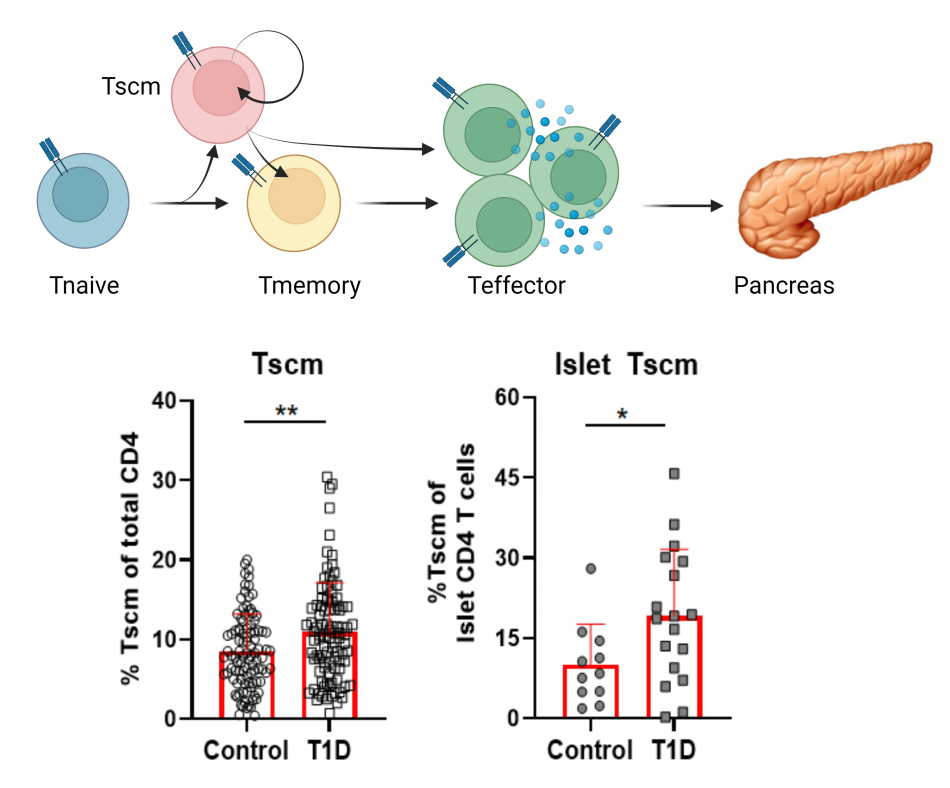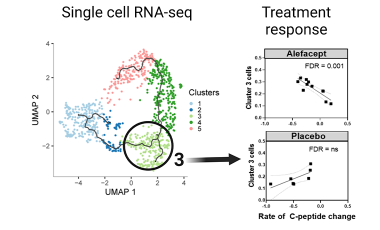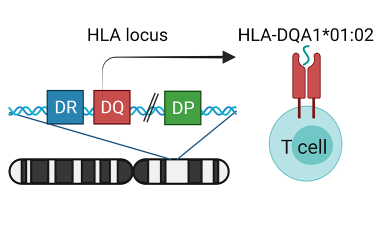Islet autoreactive T cells contribute to the development of autoimmune type 1 diabetes (T1D) by destroying insulin-producing β-cells in pancreatic islets. Targeting T cells has been a major therapeutic strategy in T1D, but not all individuals respond to treatment. To try to understand this heterogeneity, the Cerosaletti lab is studying a subpopulation of memory T cells that have stem-like features.

T stem cell memory (Tscm) cells have the capacity for self-renewal and the ability to give rise to memory and effector T cells, raising the possibility that Tscm cells can serve as a reservior of autoreactive effector T cells. We hypothesize that autoreactive Tscm cells may impact disease progression and reponse to therapy.
The Cerosaletti Lab has observed an expansion of islet reactive CD4 Tscm cells in subjects with T1D and is working to further understand their relationship to disease by studying Tscm cells in samples from T1D clinical trials and from subjects before and after they develop T1D. In parallel, the lab is characterizing the ability of CD4 Tscm to self-renew and differentiate into autoreactive effector T cells, as well as performing transcriptional, genetic, and epigenetic analyses to uncover the mechanisms leading to the increase of Tscm cells in T1D that could be targeted therapeutically.
Additional Research Projects

Autoreactive T cells in type 1 diabetes
The lab is investigating autoreactive effector and regulatory T cells in T1D using single cell RNA sequencing to identify features of these cells that are linked to disease course or response to therapy.

Genetics of response to allergy immunotherapy
The Cerosaletti Lab is studying the role of genetic variation in the HLA class II genes in the response to peanut oral immunotherapy by analysis of antigen presentation and recognition by peanut specific T cells.


